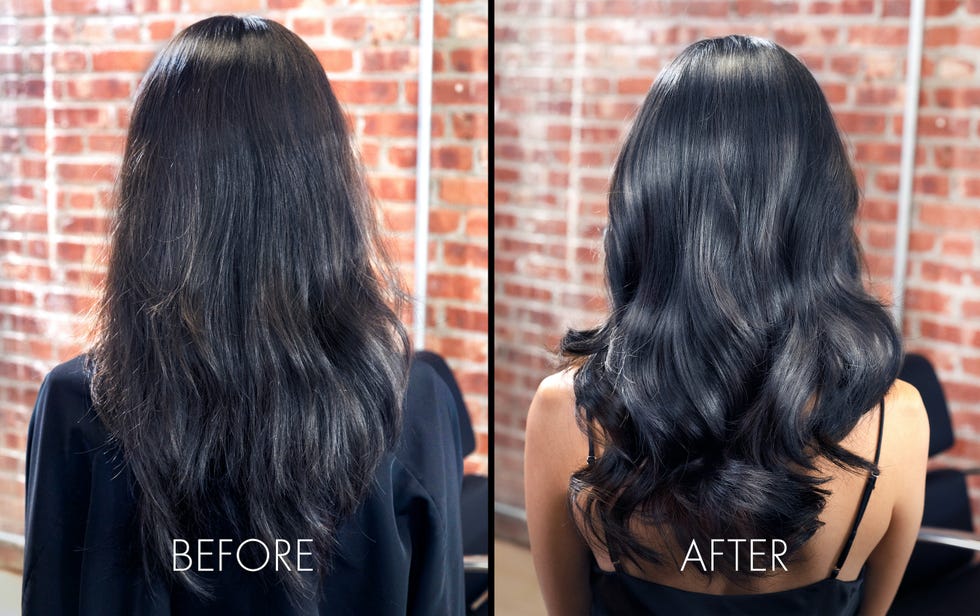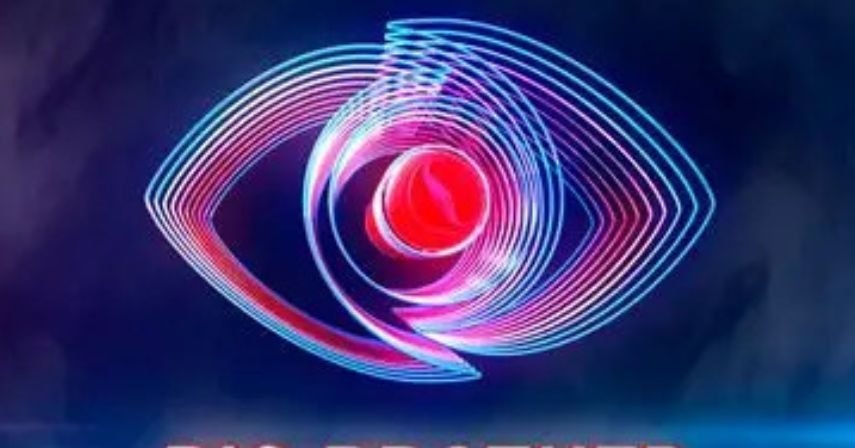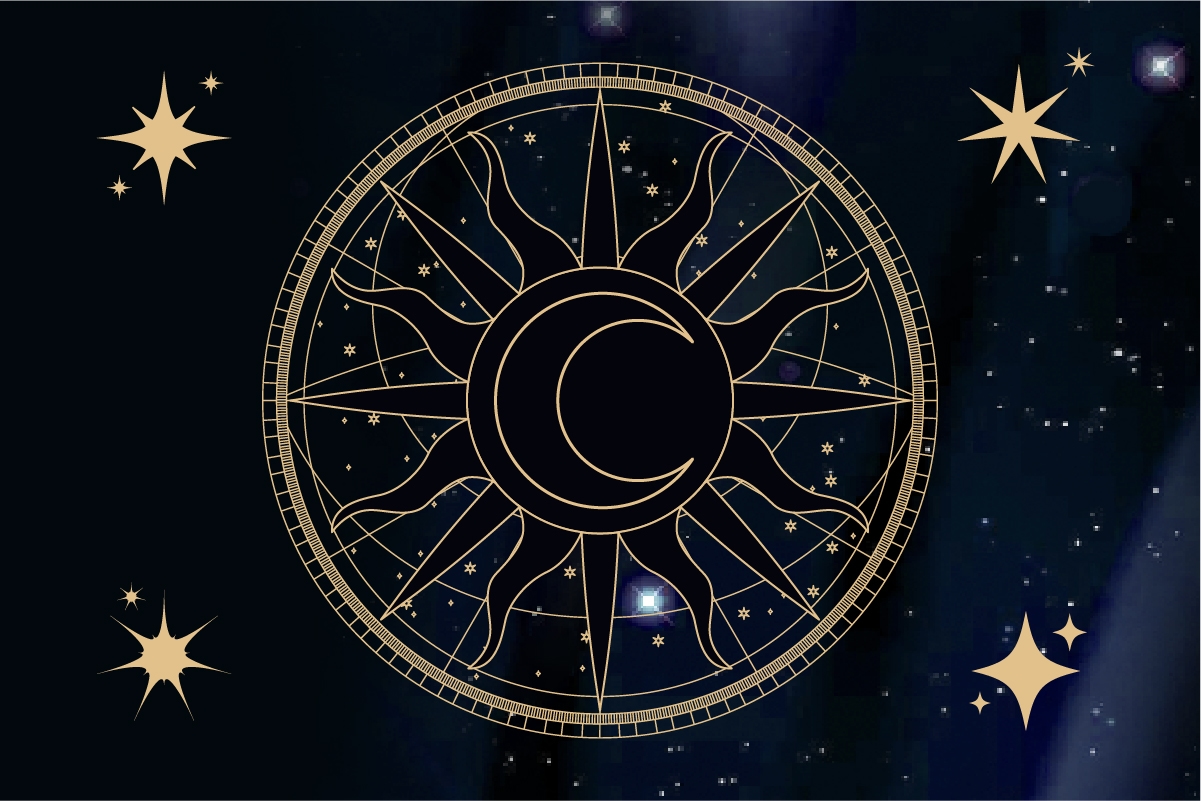What Is a Hair Gloss? Here’s Everything You Need to Know

In an ideal world, we would all be born with hair that has a glass-like shine. However, the reality is that for most of us (especially those who’ve bleached, dyed, or over-styled their hair with heat), that's not the case. There are thousands of products on the market, such as hair masks or hair oils, that can help restore your shine by making hair stronger and healthier, but very few immediately deliver that shampoo commercial-like gleam. Thankfully, the solution to your hair prayers is something as simple as a hair gloss.
Hair gloss is an in-shower treatment that adds a boost of softness and shine to your strands. “It sits on the surface of the hair to create a reflective finish, and some color glosses also enhance your natural tone or help neutralize unwanted undertones,” explains Anthony Rawlings, a hairstylist and co-founder of Rawlings & Rawlings Hair Salon—London. “Think of it as a beautiful top coat for your hair.”
The great thing about a hair gloss is that it doesn’t fully process your hair like a dye would, so it’s gentle while being effective. If you’d rather leave it to the experts, you can book a hair gloss treatment at a salon, but there’s a variety of at-home treatments out there that can give you the same results at home.
To find out if a hair gloss treatment is right for you, we’ve consulted experts to learn everything there is to know about hair glosses. Keep reading for a full breakdown on how hair gloss treatments work, how often you should use a hair gloss, the best ones to use at home, and more.
Hair gloss is a temporary fix that coats the hair and seeps into the cuticle in a way that can improve both the health of your hair and its shade. “An at-home hair gloss is typically a semi-permanent hair treatment that adds shine and benefits the overall health and softness of your hair,” says Brad Mondo, founder and creative director of XMONDO. The best part? It couldn't be easier to use—just apply to wet hair, let it sit for a few minutes, and rinse. “Hair glosses are so easy to use, take no time at all, and instantly give your hair that shine boost—whether it’s for an event or just everyday sparkle,” adds Rawlings.
“Semi-permanent gloss is typically a professional product of pigment mixed with developer. Direct dyes have just pure pigment and stain the hair,” colorist Lucille Javier of New York’s Mark Ryan Salon says. She also notes that there are many types of hair glosses, which can be mixed to adjust your specific hair color. The frequency of use for a hair gloss depends on the lightness or darkness of your natural hair color. As always, it’s best to check with your colorist to determine your gloss treatment frequency.
While hair gloss is great for chemically-treated hair, there are perks to glossing virgin hair, too. “A gloss can be clear or colored, depending on your desired result,” says Mondo. “You do not have to color your hair to use a gloss. If you use a clear gloss, it will not color your hair. It will only add shine and benefit the overall health of your hair.”

A gloss can help “fine-tune” a shade to be more even, dark, or brighten the existing color. When done in a salon, “it’s mixed specifically for a client and their needs," Javier adds. “I have clients who enjoy coming in for a gloss more frequently because of the high shine and the subtle difference in the hair.”
Though she advises you to ask your salon for the best recommendations, Javier broke down the following suggestions for dyed hair:
Red/strawberry blonde: “Red is one of the colors that fade very fast. Glosses [should be] more frequent depending on how saturated the color is. Dark red or auburn hair tends to need less color, while strawberry blondes need more upkeep.”
For dark/ light blonde: “Depending on the tone of hair—think of silver-blondes or very pale white—glosses tend to be done more frequently.”
For darker hair: Javier says dark tones “can get away with coloring hair less often.”
To determine which gloss is best for you, “you must first understand what your priorities are,” says Mondo. “Are you trying to cancel the warmth in your hair and make it ashier? Trying to go darker? If so, then you’ll want to opt for a colored gloss that achieves the desired result you’re looking for. However, if your only desire is to add shine and make hair look healthier, then a clear gloss is great for you.”
Anyone can reap the benefits of a hair gloss, no matter how straight, wavy, or curly your hair is. If lustrous locks are your goal, this treatment will be a huge help in getting you there.
Your hair gloss schedule depends on personal preference and the product used, but Rawlings recommends using a gloss every 10 washes. And if you color your hair, Javier says that the more you gloss, the longer your hair color can last.
“[The treatments] last about a month,” says Javier. “Using color-safe conditioner and using cooler temperature water keeps the color in longer.”
Generally, salon glosses will last a little longer than at-home glosses. “When it comes to doing a clear gloss at home, typically they’re semi-permanent, while in the salon, they’re typically demi-permanent and mixed with a developer,” says Mondo. “Demi-permanent glosses or glazes can last longer because they penetrate slightly into the hair, whereas an at-home gloss lies on top of the hair.”
Quite the opposite, actually. Hair glosses not only improve the appearance of hair health through improved shine and hydration, but also often include ingredients like amino acids or conditioning agents that nourish weak or damaged hair.
“You can definitely get a great glossing treatment at home,” says Mondo. “This is a fairly simple process, especially when using a clear gloss. All it takes is a quick wash of your hair, then apply the gloss, and rinse it after about 20 minutes or as directed. It’s foolproof and as easy as using a traditional hair conditioner. I recommend our XMONDO Super Gloss because it has incredibly beneficial ingredients.”
The same even goes for colored glosses, though you won’t be able to get as unique a color as you can get in a salon. “When it comes to doing a colored gloss, the main difference is that at a salon, you will get a mixed formula custom to you and applied by an expert,” Mondo says. That being said, there are so many colors and tones available for at-home use, and the right product will still make your hair shinier and stronger.
Brad Mondo is a celebrity hairstylist, influencer, and founder of the haircare line XMONDO.
Lucille Javier is a New York-based colorist at the Mark Ryan Salon.
Anthony Rawling is a hairstylist and co-founder of Rawlings & Rawlings Hair Salon- London.
As a leading publisher of fashion, lifestyle, and beauty content, ELLE.com is committed to highlighting the best products in various categories by personally testing the latest and most innovative products, interviewing countless experts, and vetting customer-loved items. For this piece, beauty writers Emma Aerin Becker and Carol Lee along with beauty editor Katie Berohn spoke with trusted hair experts and conducted research to find out more about hair gloss and find the best hair glosses on the market.
elle












